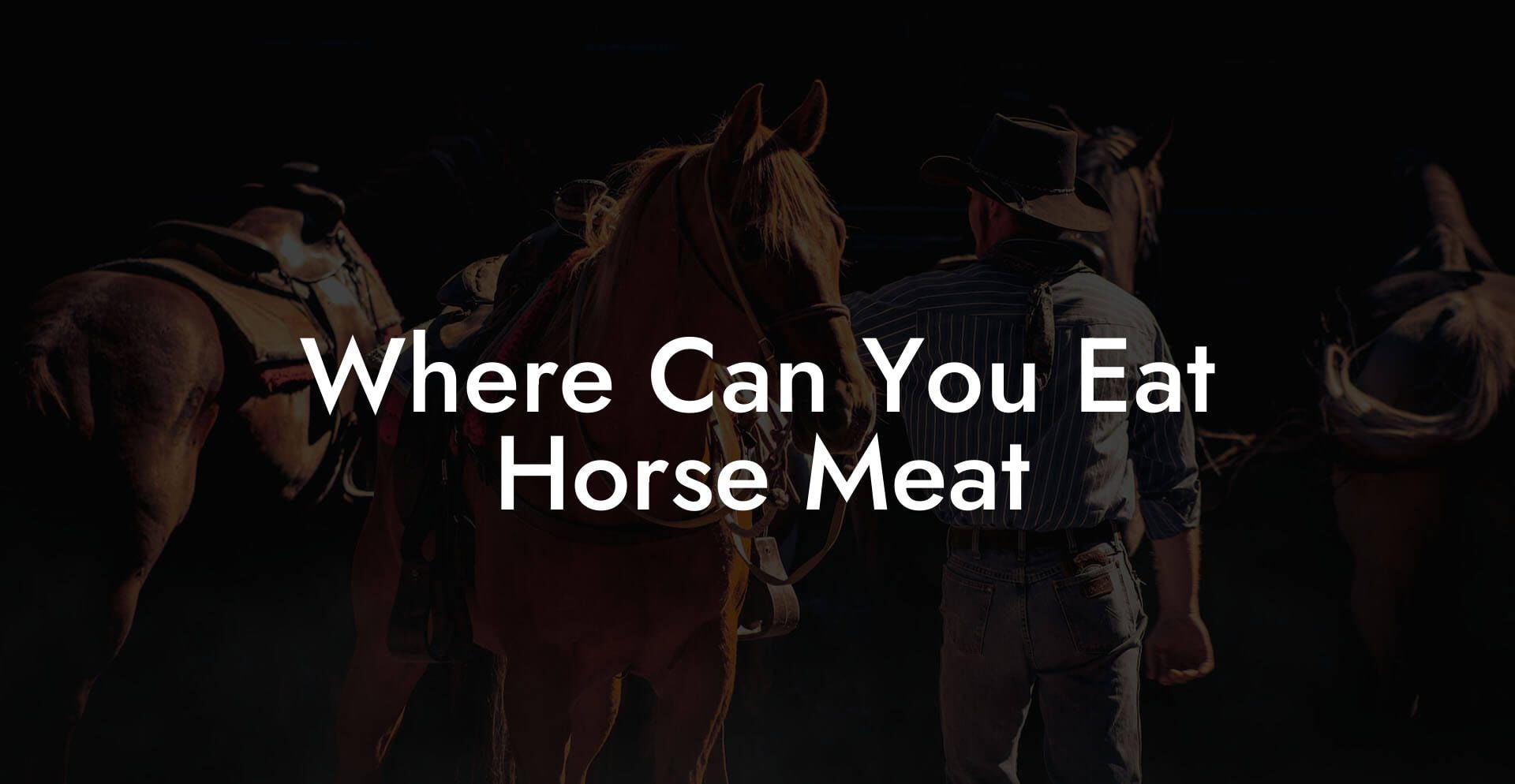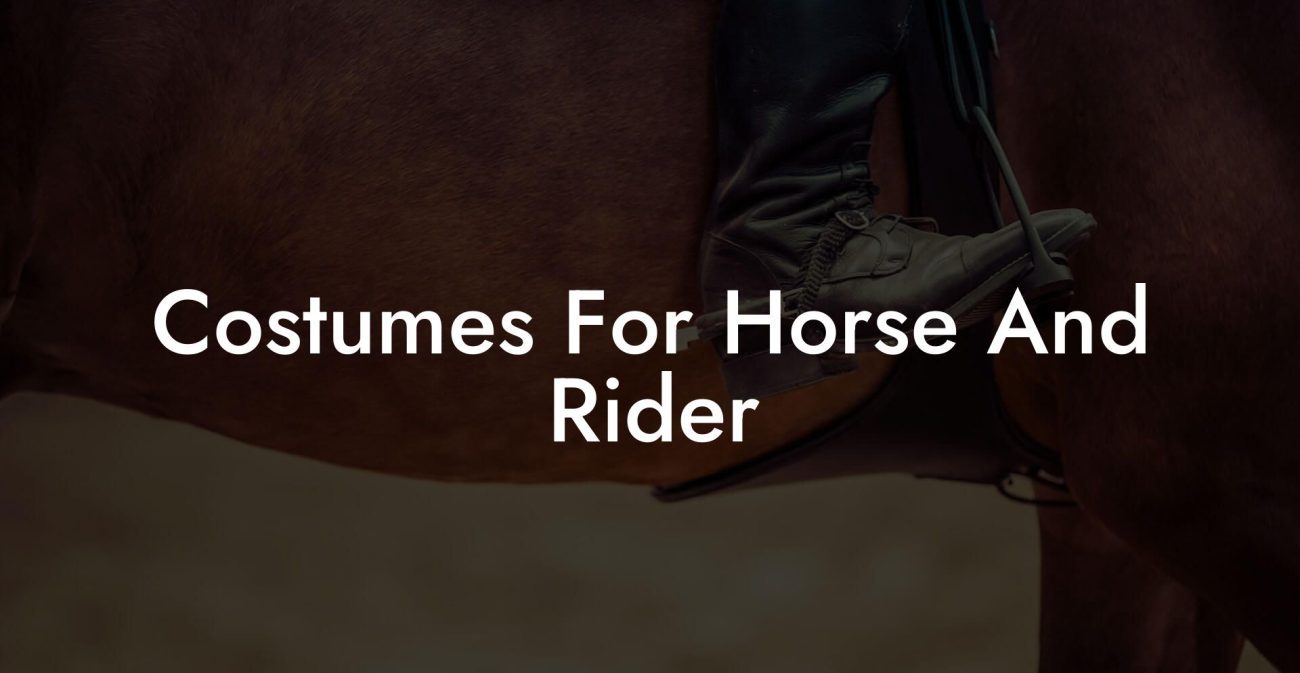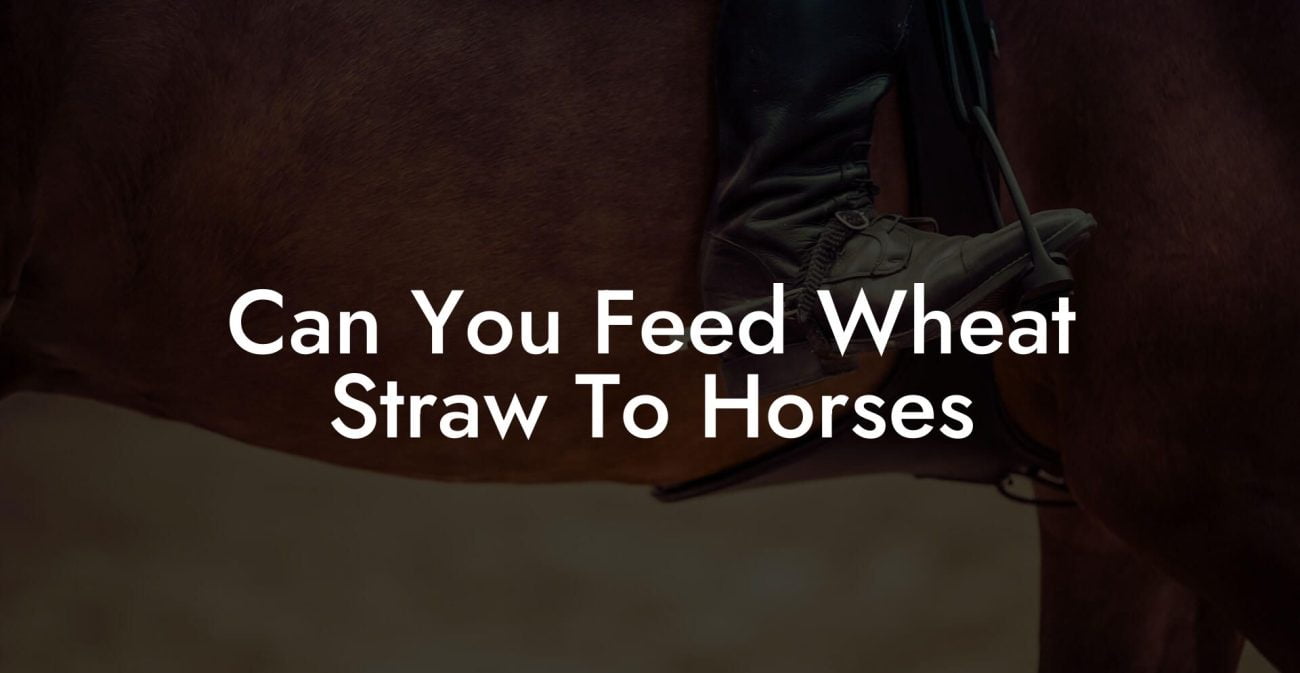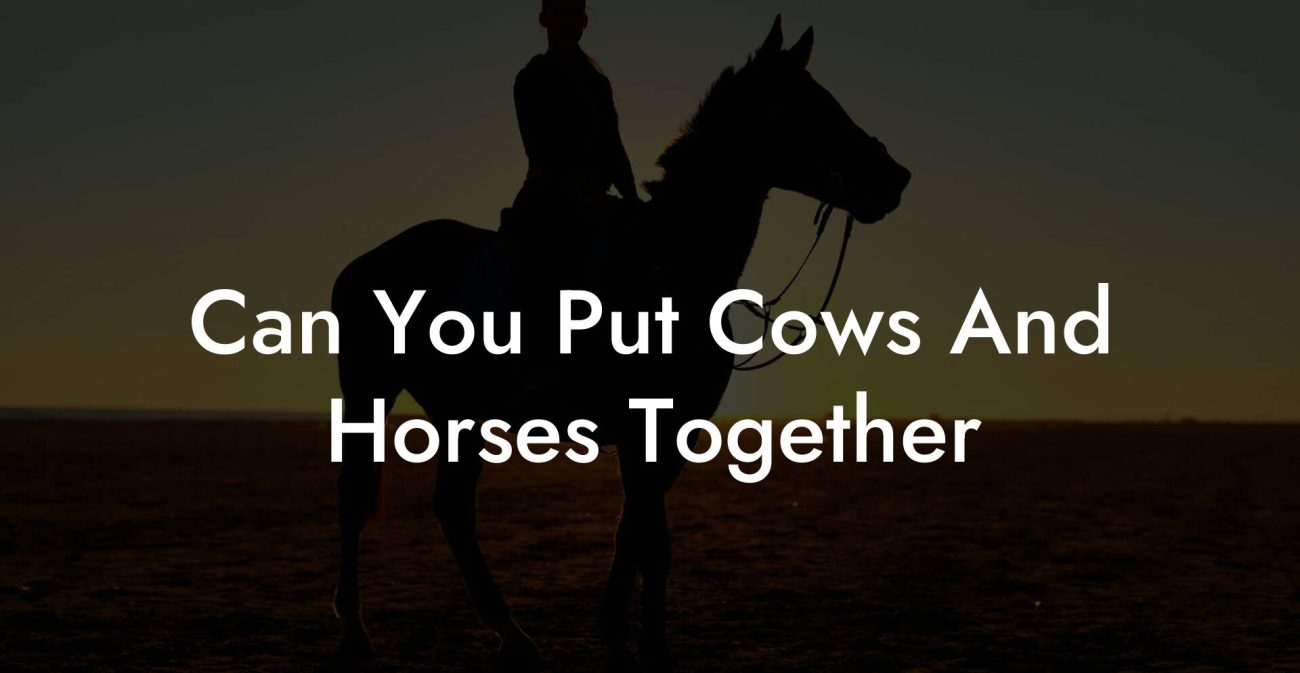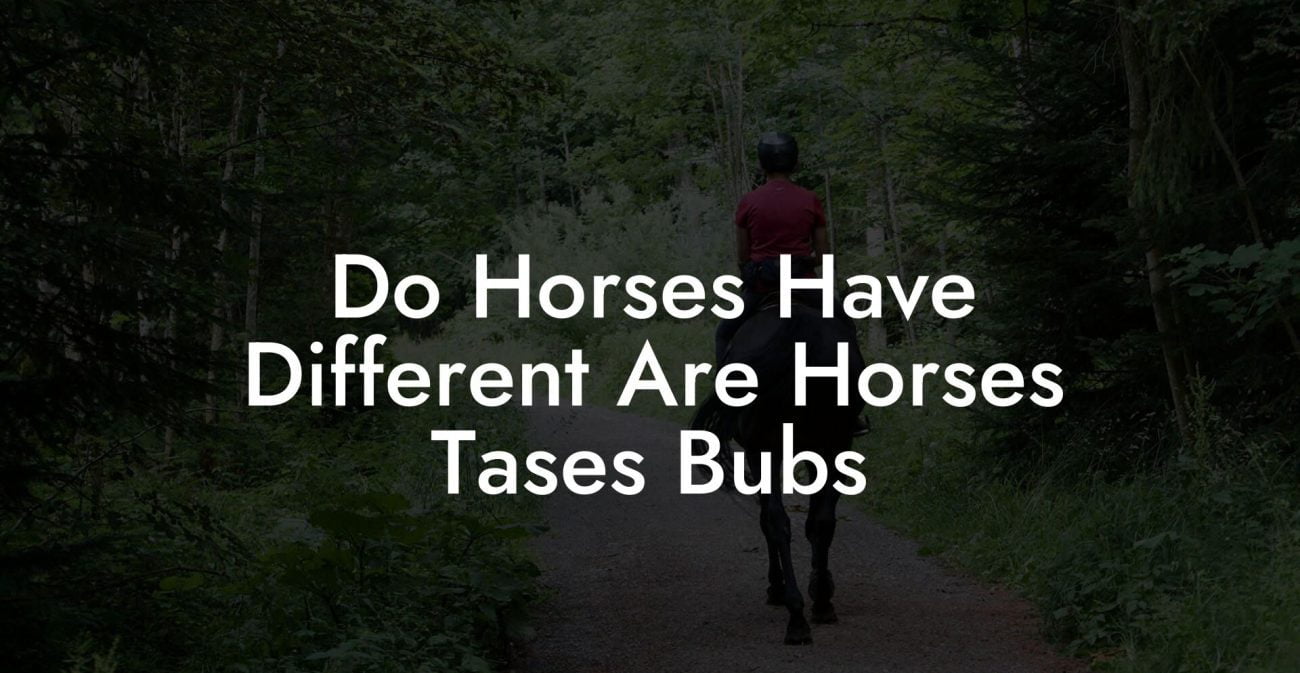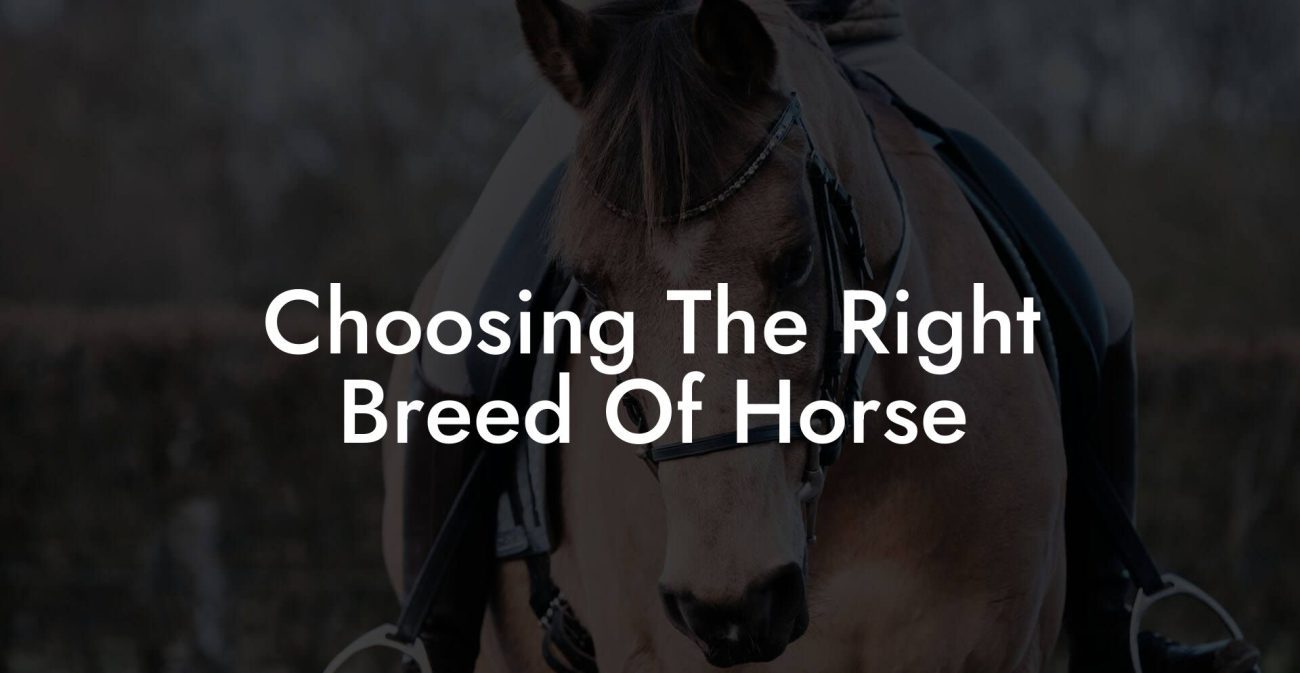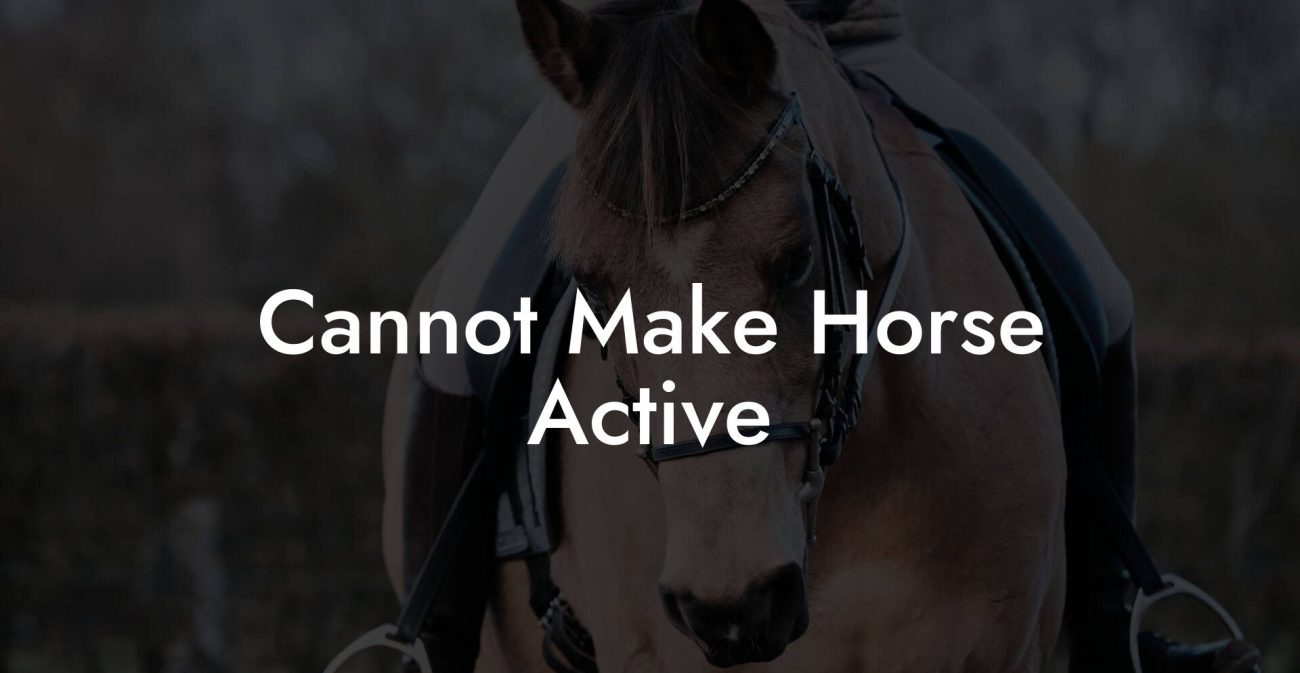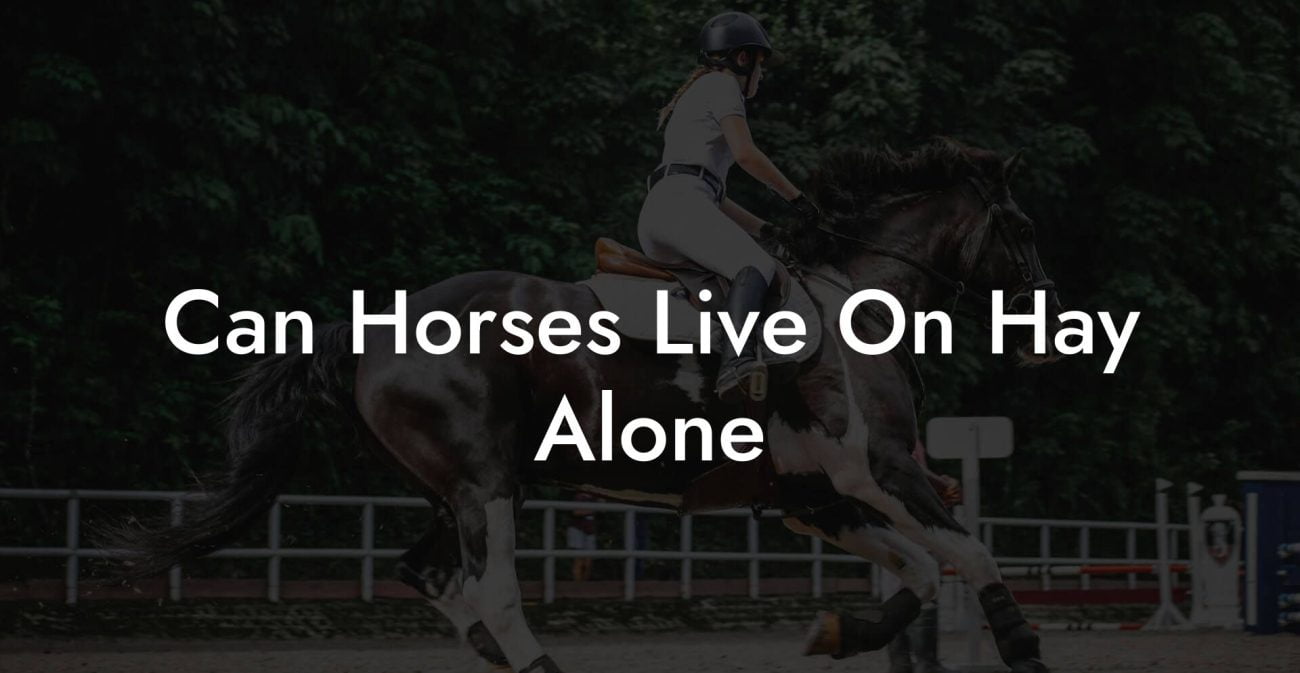Horse meat: it’s not your everyday menu item, but it sure packs a punch of history, culture, and controversy. If you’re a Gen-Z or millennial rider with an appetite for adventure and a penchant for all things equine, from caring for your majestic horse to exploring culinary curiosities, you’ve come to the right place. In this deep dive into “Where Can You Eat Horse Meat,” we’ll explore the history, geography, ethical debates, and even the restaurant guides surrounding this unique delicacy. Ready to saddle up for a ride that’s as informative as it is entertaining? Let’s gallop right in.
Quick Links to Useful Sections
- A Quick Gallop Through History: The Legacy of Horse Meat
- Where in the World Can You Eat Horse Meat?
- The Ethics and Controversies: To Eat or Not to Eat Horse Meat?
- Finding the Perfect Spot: A Guide to Horse Meat Restaurants
- What’s on the Menu? Demystifying Horse Meat Dishes
- Parallel Tracks: Caring for Your Horse vs. Culinary Consumption
- Regulations and Legality: Navigating the Law of the Land
- Resources and Community Support: Your Next Steps
- FAQ: Your Burning Questions About Eating Horse Meat
- Your Ride Into Culinary and Equestrian Adventures
A Quick Gallop Through History: The Legacy of Horse Meat
Horse meat isn’t a modern culinary invention; it’s been a part of human diets for centuries. From ancient Central Asian nomads to medieval Europeans, the consumption of horse meat has a storied past that runs parallel to the evolution of domesticated horses. Whether used as sustenance for long migrations or as a strategic food source in times of scarcity, horse meat has always had a fascinating role in shaping cultural and social practices.
Across continents, horse meat has been celebrated and simultaneously shunned. In some cultures, it symbolizes strength and agility, praised as the meat of warriors, while others view it with a skepticism born out of a deep bond with these majestic creatures. This duality makes horse meat one of the most intriguing culinary topics, bridging both tradition and modern ethical debates.
Interestingly, the reverence and aversion toward horse meat often reflect broader questions about animal rights and cultural identity. While some see its consumption as an homage to a rich heritage of survival and innovation, others stand firmly on the side of horse welfare. This historical backdrop not only enriches our understanding of the dish but also invites us to examine how our modern eating habits resonate, or clash, with generations past.
As nations evolve and cultural boundaries blur, the practice of eating horse meat has sparked lively debates about legality, ethics, and even culinary sophistication. By delving into its past, we gain insight into how different societies have balanced respect, utility, and innovation in the way they view these magnificent animals.
So, whether you’re an adventurous eater or someone who spends weekends grooming your equine companion, the journey through the history of horse meat offers a surprisingly layered narrative, one that invites reflection on tradition, transformation, and the ties that bind us to the animals we admire.
Where in the World Can You Eat Horse Meat?
Let’s charge straight into the heart of the matter: the geography of horse meat consumption. While it might seem niche at first glance, there are several regions where horse meat is celebrated as a delicacy, often prepared in innovative ways that highlight its rich flavor and lean composition.
In Europe, countries like France, Italy, Belgium, and Switzerland have long embraced horse meat as a part of their culinary tradition. French bistros serve up dishes like "tartare de cheval" and "steak de cheval," while Italian chefs artfully incorporate it into salumi and pasta sauces. The regional variations are as diverse as the landscapes, from the pastoral fields of Belgium to the rugged mountains of Switzerland, each adding its unique twist to this unconventional protein.
Moving east, Central Asian nations such as Kazakhstan and Mongolia also feature horse meat prominently in their diets. Here, it’s more than just food, it’s a testament to the nomadic lifestyle that has defined these cultures for centuries. Traditional dishes such as "kazy" (a type of sausage) and boiled horse meat stew are common fare, passed down through generations and savored during festive gatherings.
In addition, countries like Japan and parts of South America have seen a resurgence in interest for horse meat as part of modern culinary experimentation. Japan, with its tradition of raw meat dishes like sashimi and tartare, has added its own twist on horse meat, reflecting a broader trend of exploring regional flavors in an era of global fusion cuisine.
Even within North America, the topic of horse meat stirs up significant conversation. While the United States and Canada have strict regulations regarding the sale and consumption of horse meat, there are specialty markets, underground movements, and ongoing debates about the ethics and practicality of commercializing this protein. It’s a place where cultural history, legal constraints, and modern culinary daring intersect.
For the adventurous foodie, locales such as these promise more than a meal, they offer a deep dive into cultural nuance. Whether you’re savoring a tender horse meat steak in a quaint European bistro or sampling a rustic stew in Central Asia, every bite carries the flavors of tradition, resilience, and a dash of subversive charm.
The Ethics and Controversies: To Eat or Not to Eat Horse Meat?
Now that we’ve trotted through the geography of horse meat consumption, let’s pause to address the controversial side of the saddle. The question of whether to eat horse meat isn’t just a culinary choice, it’s a multi-faceted debate that blends ethics, animal welfare, and cultural identity.
For many, horses are not merely livestock but companions, symbols of freedom, and integral parts of communities, particularly in cultures with deep equestrian traditions. This emotional connection can make the idea of consuming horse meat a tough pill to swallow, even for the most intrepid food lovers. Ethical debates often focus on the treatment and rearing of horses versus other livestock, pushing for transparency and humane practices in the production chain.
On the other side of the coin, advocates for horse meat consumption argue that when sourced responsibly, it represents a lean, sustainable protein alternative. They emphasize farm-to-table practices, strict regulations, and a respect for culinary heritage. Some even point out that consuming horse meat can reduce the environmental impact compared to other animal farming practices, a key argument in today’s era of climate-conscious dining.
The controversy extends into legal realms as well, with varying laws across countries. In some regions, consuming horse meat is fully accepted and regulated, while in others, it is either heavily restricted or outright banned. This legal tug-of-war reflects deeper societal values and the evolving perspectives on what constitutes ethical consumption.
For the modern consumer, a rider who might also be a conscientious caretaker of horses, this debate offers a chance to reflect on personal values. It’s about understanding where your food comes from, ensuring that it aligns with your beliefs about animal welfare, and making informed choices that respect both tradition and modern ethical standards.
Finding the Perfect Spot: A Guide to Horse Meat Restaurants
Ready to try horse meat for yourself? If your culinary curiosity is piqued, there are strategic ways to track down restaurants that specialize in this unique offering. Whether you’re planning a foodie road trip across Europe or exploring hidden gems in Central Asia, here’s your definitive guide to finding that perfect plate.
First off, do your homework. Websites like TripAdvisor, Yelp, and specialized foodie blogs often feature detailed reviews and insider tips on restaurants that serve horse meat. Look for establishments with a reputation for culinary excellence and a commitment to ethical sourcing. Many top-notch restaurants now proudly share the origins of their ingredients, so check out their “about us” pages and menu descriptions.
Don’t overlook local culinary festivals and pop-up events, especially in regions where horse meat is a traditional dish. These events not only offer a taste of authentic recipes but also provide an immersive cultural experience where you learn about the history, preparation, and serving styles of horse meat dishes.
Social media platforms are a treasure trove of information. Follow food influencers, local chefs, and culinary enthusiasts who specialize in offbeat dining experiences. Instagram and TikTok, in particular, have exploded with video reviews and mouthwatering photos showcasing horse meat plated artfully. These posts often include the names and locations of the best spots to try out.
Word of mouth is another unbeatable resource. Whether you’re chatting with fellow equestrians or joining online forums dedicated to adventurous dining, personal recommendations can lead you to hidden gems that aren’t listed on mainstream review sites. In today’s interconnected world, crowdsourced wisdom is one of your greatest assets.
Finally, if you’re planning a visit to a country where horse meat is popular, consider reaching out to local tourism boards or culinary associations. They can provide detailed guides and recommendations, ensuring that your dining adventure is both safe and satisfying.
What’s on the Menu? Demystifying Horse Meat Dishes
One of the most thrilling parts of exploring a new culinary landscape is discovering the variety of dishes on offer. Horse meat isn’t a one-trick pony, it comes in many delightful forms, each with its own taste profile and presentation style.
In France, you might order a beautifully presented dish of tartare de cheval, a raw preparation seasoned to perfection with capers, shallots, and a drizzle of olive oil. The dish is all about showcasing the natural, lean flavors of the meat while offering a refreshing twist on the classic steak tartare.
Over in Italy, horse meat might be found transformed into deliciously spiced salumi or included in traditional pasta sauces that tell tales of rustic village kitchens. The meat’s tenderness and inherent subtle sweetness make it a versatile ingredient that adapts well to various cooking techniques.
Venture further east and you’ll encounter robust dishes like boiled horse meat stews or grilled cuts served with hearty sides of potatoes and seasonal vegetables. In Central Asia, dishes such as “kazy”, a type of cured horse sausage, offer a unique flavor that is often enhanced with local spices and preparations passed down through centuries.
Even in modern, fusion-style eateries, chefs are experimenting with reinterpretations of classic horse meat recipes. Imagine a gourmet burger with a patty crafted from finely ground horse meat, layered with artisanal cheese, fresh greens, and a tangy aioli, an inventive nod to both tradition and modern palate preferences.
Each dish not only reflects local culinary traditions but also highlights the versatility of horse meat as a protein source. With its low fat content, high nutrient value, and rich flavor profile, horse meat manages to surprise even the most skeptical foodies with its adaptability and gourmet appeal.
Parallel Tracks: Caring for Your Horse vs. Culinary Consumption
Here’s an interesting twist: while this page explores the cultural and culinary presence of horse meat, many of you are also passionate about the care and well-being of your own horses. It might seem like two very different topics at first glance, but both are bound by a deep respect for these magnificent animals.
Caring for your horse involves a commitment that mirrors the thoughtful approach many consumers now take toward food ethics. Just as you might research the best diets, exercise routines, and living conditions for your four-legged friend, those exploring horse meat often underscore the importance of ethical sourcing, sustainable farming, and animal welfare.
This parallel isn’t just academic, it has practical implications. Ethical consumption is on the rise, and many modern restaurants are committed to transparent, humane practices. When you’re evaluating a dining establishment that serves horse meat, check if they offer details about where their meat comes from. Look for certifications or partnerships with farms that treat their horses with the respect they deserve.
For riders and horse enthusiasts, staying informed about both ends of this spectrum can enhance your overall experience. Not only can you enjoy culinary adventures while knowing the practices align with your values, but you can also bring a discerning eye to discussions about animal care in the broader food industry.
In a rapidly shifting cultural landscape, the ability to balance loving pet care with an appreciation for culinary diversity is a modern superpower. It’s about embracing a mindset that respects life in all its forms, whether you’re nurturing your own horse or savoring a thoughtfully prepared dish on your plate.
Regulations and Legality: Navigating the Law of the Land
A crucial part of understanding where you can eat horse meat involves navigating the maze of legal regulations. Laws vary dramatically by country, and even within regions, what’s permissible on a plate can become a legal tightrope walk. So before you take that tempting bite, it pays to know the legal landscape.
In many European nations, horse meat is not only legal but celebrated. Strict guidelines govern its production, ensuring that horses used for meat are raised under clear ethical standards. Regulatory agencies enforce high benchmarks to prevent abuse and ensure that the meat reaching your table is safe and responsibly sourced.
Across the Atlantic, however, things get a bit more complicated. In the United States, for instance, the sale of horse meat is highly restricted. Political, cultural, and historical factors have led to stringent regulations, effectively limiting the availability of horse meat in mainstream markets. That said, there are niche markets and underground channels that cater to adventurous eaters, though they often operate on the fringes of the law.
Canada presents a somewhat intermediate picture. Certain provinces permit the consumption of horse meat while others impose tighter controls, reflecting the ongoing debate about the ethical and practical aspects of its production. As legal frameworks continue to evolve, staying up-to-date with local laws is essential, especially for those planning international culinary excursions.
For the modern foodie, armed with smartphones and a keen sense of ethics, understanding these legal nuances is just part of the thrill. It transforms every dining venture into an informed exploration of not only flavors but also the principles that guide food production in our interconnected world.
Resources and Community Support: Your Next Steps
Ready to delve deeper, connect with like-minded food adventurers, or even find a community that melds the love of horses with culinary exploration? There’s an entire ecosystem out there waiting for you.
First up, check out online forums and social media groups dedicated to alternative meats and ethical dining. Platforms like Reddit, Facebook, and specialized blogs can connect you with experts, home chefs, and even former riders who share their experiences and reviews of horse meat restaurants around the globe.
Consider subscribing to culinary magazines, online newsletters, and YouTube channels that focus on offbeat culinary traditions and sustainable food practices. These resources not only expand your gastronomic knowledge but also keep you updated on shifting trends and regulatory developments.
For those who are serious about merging their passion for horses with ethical eating, local community boards and equestrian clubs might host events, tastings, or even educational sessions on responsible consumption practices. These gatherings offer a perfect blend of culinary adventure and community support.
Lastly, don’t hesitate to engage with local chefs and restaurateurs directly. Many are proud to share their sourcing practices and can offer detailed insights into the ethical considerations behind every dish. By building these relationships, you not only enrich your dining experiences but also support practitioners who are committed to transparency and quality.
FAQ: Your Burning Questions About Eating Horse Meat
Below are some frequently asked questions that cover everything from culinary techniques to ethical considerations when it comes to horse meat. We’ve also integrated a structured data schema to ensure these FAQs are search-engine friendly.
1. Is horse meat safe to eat?
Yes, horse meat is safe to eat when it is sourced from reputable, regulated suppliers who follow strict ethical and health guidelines. Always check the country’s regulations and the restaurant’s transparency about sourcing.
2. What dishes are commonly made with horse meat?
Common dishes include horse meat tartare, steak, sausages (like kazy in Central Asia), and even gourmet burgers. Preparation methods vary by region, reflecting diverse culinary traditions.
3. Where can I find restaurants that serve horse meat?
Many European countries, Central Asian regions, and select restaurants in Japan serve horse meat. Online review platforms and local foodie guides are great resources to locate these establishments.
4. What are the ethical concerns associated with eating horse meat?
Ethical concerns include animal welfare, humane treatment, and sustainable sourcing. Many advocates encourage transparent practices to ensure that horses are raised and processed ethically.
5. Is horse meat more sustainable than other meats?
Horse meat is often touted as a lean, high-protein alternative to traditional red meats and may have a smaller environmental footprint when produced under sustainable practices.
6. Can I try horse meat if I’m allergic to other red meats?
Allergic reactions vary individually. If you have existing allergies to red meat, consult your doctor before trying horse meat for the first time.
7. What should I look for in a restaurant serving horse meat?
Look for clear information about sourcing, ethical farming practices, and credible reviews from both locals and international food critics.
8. How do cultural perceptions influence the consumption of horse meat?
Cultural perceptions vary widely, what is considered a delicacy in one region can be taboo in another. Understanding the cultural context can enrich your overall culinary experience.
Your Ride Into Culinary and Equestrian Adventures
Whether you’re embarking on a culinary quest to taste a dish with centuries of tradition or looking for insights that enrich your understanding of equine care, the journey is all about exploration and balance. The world of horse meat is as multifaceted as the horse itself, steeped in history, sprinkled with controversy, and served with a side of bold flavors.
Every time you choose to step into a restaurant that offers horse meat, you’re not just trying a new dish, you’re engaging with a complex narrative that spans continents and cultural identities. And if you’re a horse owner or enthusiast, you know that caring for your horse goes beyond routine grooming and stable management; it’s a commitment to understanding and appreciating the layers of history and culture that influence how these majestic animals are perceived.
So, as you navigate your dual passions, whether that’s crafting the perfect stable that nurtures your equine partner or forging culinary adventures where horse meat is celebrated, you’re part of a vibrant and dynamic community. A community that values transparency, ethical practices, and the joy of lifelong learning.
Embrace the ride, stay curious, and let your adventurous spirit guide you, both in the kitchen and in your stable. The world is wide open, full of flavors to savor and horses to care for, waiting to be explored by those with a taste for the extraordinary.
Your journey into the realms of culinary innovation and equestrian excellence is just beginning. Buckle up, enjoy the ride, and let each step bring you new insights, memorable flavors, and the empowering knowledge that comes from embracing all facets of life, be it on a dining plate or in the loving care of your horse.

